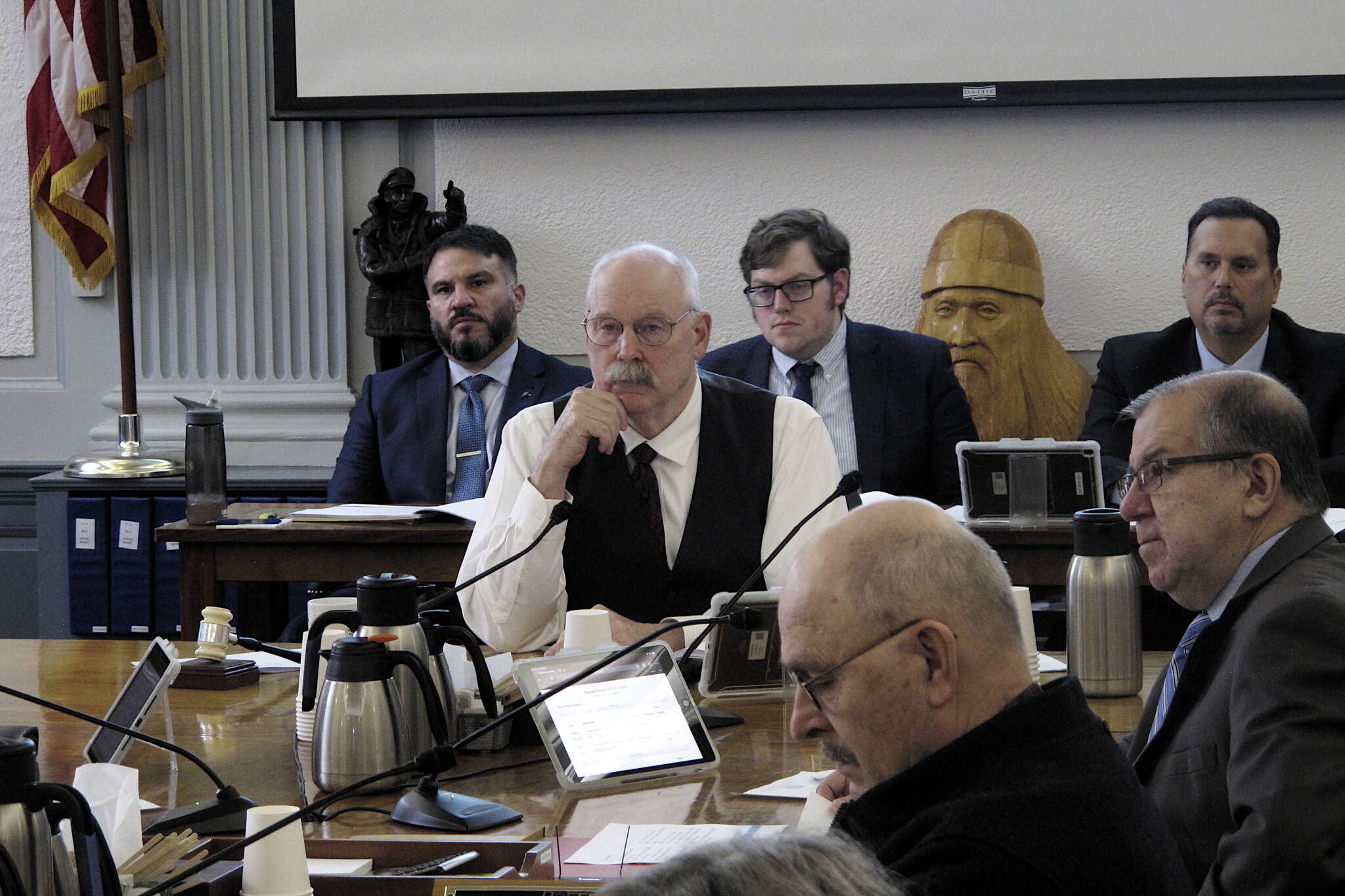Emergency funding officials say will resolve the crisis-level backlog of food stamp applicants within the next two months got final approval from the Alaska State Legislature on Monday.
The $8.4 million emergency supplemental budget contains about $3.1 million to hire about 30 employees to help with the backlog at the Division of Public Assistance, which processes food stamps and other benefits including Medicaid. Deb Etheridge, the division’s director, told lawmakers shortly before the floor vote that the end of the backlog that affected at least 8,000 Alaskans beginning last September appears to be in sight.
“We anticipate we’ll be out of that backlog within two months, but we’ve seen a cascade of backlogs in all of our programs,” she told the Senate Finance Committee, which approved the bill for the supplemental budget about an hour before the Senate floor session where it was approved unanimously. The House approved the bill by a 38-1 vote last Wednesday.
Etheridge said the total current backlog involves more than 2,000 cases and, while the food stamp applications should be caught up in less than two months, it will take that long to catch up on all the division’s programs.
The backlog has been attributed to multiple factors, including obsolete equipment that’s decades old. Some officials have also put part of the blame on Gov. Mike Dunleavy’s administration cutting more than 100 public assistance division jobs in 2021, despite warnings about adequate staffing.
The supplemental budget also contains funds to deal with shortages deemed crucial in the Public Defender Agency — which last month said it would have to stop accepting new clients in the Nome and Bethel due to staff shortages — and the Office of Public Advocacy, which provides legal help to vulnerable residents.
Dunleavy submitted a supplemental budget request earlier this year with far more items, but those were stripped out for the fast-tracked bill now being sent to his desk.
“Today, in front of us we have the smallest supplemental budget that we could get to working with the administration trying to minimize the financial impacts,” Sen. Bert Stedman, a Sitka Republican who co-chairs the Senate Finance Committee, said during Monday’s floor session.
The supplemental bill does contain a provision allowing up to $115 million to be spent from the $2.3 billion Constitutional Budget Reserve to fund other spending items approved by lawmakers for the fiscal year ending June 30. A three-fourths vote of the Legislature is needed to access the fund, with both chambers approving that provision by near-unanimous tallies.
State Sen. Jesse Kiehl, a Juneau Democrat, said during the committee meeting before the floor vote he hopes state public assistance officials will be forthcoming if the funds they have aren’t enough to resolve the backlog as quickly as predicted.
“I think the request to catch up on food stamps and Medicaid is tight,” he said. “If they find this isn’t sufficient resources to get needy people the help they need they will come back.”
• Contact reporter Mark Sabbatini at mark.sabbatini@juneauempire.com

